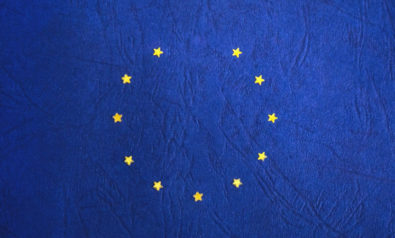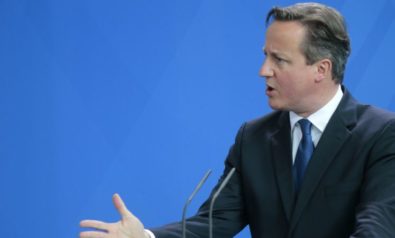Should European citizens vote on the United Kingdom’s new “special status” with the EU?
European governments have let a member state of the European Union (EU) cherry-pick the terms of its place in the union, potentially setting an irreversible situation. But should the United Kingdom remain an EU member under its new agreement? This question should be asked to all EU citizens.
After talks in Brussels, British Prime Minister David Cameron emerged victorious on February 19 and claimed he had won a “special status” for the UK. Cameron went on and set a date with destiny by scheduling a June 23 referendum on the country’s EU membership. For the next few months, the UK will be at the mercy of a pros and cons debate over the EU. The pro-EU camp, led by Cameron, will underline the economic benefits without any political and social restrictions, while the anti-EU side will highlight national sovereignty, immigration and British exceptionalism.
Cameron’s strategy has been directly grounded into British exceptionalism. His call for a “reformed Europe” is purely nationalist and does not favor the other 27 EU members—and even less the other 450 million European Union citizens. The main reason the EU made concessions over the UK’s membership is down to the economic and financial weight of the country.
During his first term in office, Prime Minister Cameron promised that if reelected in 2015, he would put the terms of the UK’s membership on the table for British voters to decide upon. Last November, he sent a letter to Donald Tusk, president of the European Council, identifying four points of reform: economic governance, competitiveness, sovereignty and immigration.
At the end of last week’s negotiations, Cameron said: “I do not love Brussels. I love Britain.” Tusk responded by saying, “I love Britain and Brussels,” leading to a follow-up by European Commission President Jean-Claude Juncker, who added: “I love Brussels more than other parts of Europe.”
This succession of statements clearly illustrates the role of each leader in the European Union and the irony of the moment.
In his “victory” speech to the British public, Cameron said: “But we will be out of the parts of Europe that don’t work for us. We will never join the euro. And we will never be part of eurozone bailouts, the passport-free area, the European army or an EU superstate.”
Such words resonate with populist fears around Europe that are more ideological than rational. The UK has not been forced to join the Schengen Area or the euro club. On defense matters, the Common Security and Defense Policy (CSDP) was bilaterally agreed with France in 1998 to avoid another Kosovo scenario, wherein Europeans are unable to secure their own backyard. The EU superstate and European army are certainly not on the agenda.
In addition, EU treaties already offer “opt-out” clauses allowing member states to decide on their contribution to the euro, Schengen Agreement and the CSDP. But Cameron is asking for a totally different thing. The prime minister is removing the essence of the European model—of an ever-closer union. The overarching dream of a political entity has died with the decision of the European Council. The British exemption from the treaty obligation to seek an “ever-closer union” has a symbolic value, but it is the soul of the European integration process.
Domino Effect
The newly agreed terms of the United Kingdom’s EU membership sets a very dangerous precedent, sending a message throughout the union that national governments can now rework the terms of their own membership. Denmark could follow the UK’s footsteps. A domino effect could take effect and will show the divide between large member states and the smaller ones. After all, would the European Council spend two days reworking the terms of Estonia’s membership?
The Brexit will be decided in the early days of summer, when in fact a European referendum should be taking place. Undeniably, British voters should have the right to give their view over staying in or leaving the EU as much as European citizens over the concessions made to the UK.
The fact that EU citizens were not included in the negotiation process is another blow to European democracy. One can certainly claim that the democratic process has been respected as each head of state and government is democratically elected. But the consequences are too important to be kept in the hands of politicians. A worst best case scenario could be to ask members of the European Parliament to vote on the new terms of the UK’s membership.
Despite the concessions, a Brexit is a real possibility. Members of Cameron’s cabinet are even divided and are campaigning for the opposing camps.
A referendum always represents a very tricky exercise to the ruling class. Most Europeans tend to use referendums to express their support or anger toward their respective national leadership. This was the case in 2005 with the French and Dutch rejections of the Constitutional Treaty.
Should the United Kingdom remain in the European Union, Prime Minister Cameron may very well be remembered as the man who initiated the process of disintegration. Indeed, the blame should be shared and land on the shoulders of other EU heads of state and government who caved in under pressure.
This may be the beginning of the end of the European integration process. So long European unity.
The views expressed in this article are the author’s own and do not necessarily reflect Fair Observer’s editorial policy.
Photo Credit: Ondrej Deml / Shockfactor.de / Shutterstock.com
 We bring you perspectives from around the world. Help us to inform and educate. Your donation is tax-deductible. Join over 400 people to become a donor or you could choose to be a sponsor.
We bring you perspectives from around the world. Help us to inform and educate. Your donation is tax-deductible. Join over 400 people to become a donor or you could choose to be a sponsor.
Support Fair Observer
We rely on your support for our independence, diversity and quality.
For more than 10 years, Fair Observer has been free, fair and independent. No billionaire owns us, no advertisers control us. We are a reader-supported nonprofit. Unlike many other publications, we keep our content free for readers regardless of where they live or whether they can afford to pay. We have no paywalls and no ads.
In the post-truth era of fake news, echo chambers and filter bubbles, we publish a plurality of perspectives from around the world. Anyone can publish with us, but everyone goes through a rigorous editorial process. So, you get fact-checked, well-reasoned content instead of noise.
We publish 2,500+ voices from 90+ countries. We also conduct education and training programs
on subjects ranging from digital media and journalism to writing and critical thinking. This
doesn’t come cheap. Servers, editors, trainers and web developers cost
money.
Please consider supporting us on a regular basis as a recurring donor or a
sustaining member.
Will you support FO’s journalism?
We rely on your support for our independence, diversity and quality.


































